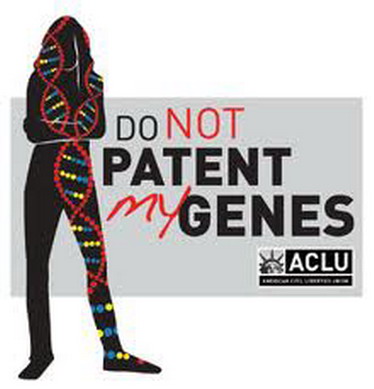Many in the clinical laboratory and pathology industry will hold their breath as Myriad seeks to derail gene patent challenge by attacking standing of sole remaining plaintiff
There’s news regarding the widely-watched federal lawsuit that challenges the gene patents owned by Myriad Genetics (NASDAQ:MYGN). On September 13, a Federal Circuit panel denied the ACLU’s Petition for Rehearing in this case. Clinical laboratory managers and pathologists following this controversial lawsuit will be interested in this latest development.
Since early this year, there have ongoing legal maneuvers by both sides in this case, which is officially titled: Association for Molecular Pathology, et al v. U.S. Patent and Trademark Office et al. 09-civ-4515. It is a high profile lawsuit because of its potential to establish important new legal precedents in how and when genes may be patented.
The petitions for a panel rehearing were filled by the American Civil Liberties Union (ACLU) and other plaintiffs, as well as the defendant, Myriad Genetics. These rehearing petitions were in response to a decision handed down on July 29, 2011, by the U.S. Court of Appeals for the Federal Circuit (CAFC). The appeals court held that composition of matter covering isolated DNA and cDNA of the BRCA1 and BRCA genes are patent-eligible under Section 101 of the United States Patent Act.

To advertise its position opposing the patenting of human genes, the American Civil Liberties Union (ACLA) has created a marketing campaign that uses this image. The ACLU is one of the plaintiffs in the lawsuit known as the Association of Molecular Pathology vs. Myriad Genetics. (Graphic copyright by ACLU.)
This was not a ruling favorable to the plaintiffs. In fact, the CAFC ruling issued on July 29, 2011 reversed the March 29, 2010 decision of the lower federal court that had originally heard the case. In that decision, Judge Robert W. Sweet invalidated seven patents related to BRCA1 and BRCA2. (See Dark Daily, “Federal Judge Invalidates Myriad’s Patents for BRCA Genes”.)
The three-judge CAFC panel had reached its decision on the merits after agreeing that one—and only one—of the plaintiffs (a researcher) had standing to file the suit. This was reported by the Bureau of National Affairs (BNA).
In its own petition for a panel rehearing, the defendant, Myriad Genetics, is now challenging the standing of this sole remaining plaintiff. That is Harry Ostrer, M.D., a researcher at New York University School of Medicine, on the grounds that he is changing employment. Myriad’s petition and legal strategy is to remove from this case the only plaintiff ruled to have standing, while leaving intact the CAFC panel’s opinion on the merits.
High-Tech Sequencers May Make One-Gene-One-Disease Business Model Obsolete
Looking forward, an article at Forbes.com noted that new technology may soon make Myriad’s gene test obsolete. New high-speed, high throughput gene sequencers from companies such as Illumina (NASDAQ: ILMN) and Life Technologies (NASDAQ: LIFE) will soon be able to sequence billions [of base pairs] for the price Myriad is charging for its BRCA test, noted the Forbes article.
The Forbes reporter went on to write that, although the court battle over gene patenting is hardly over, the one-gene-one-disease business model is “marked for dead.”
As of this date, the CAFC panel has not yet ruled on Myriad’s Petition for Rehearing on the issue of standing. Also, many legal experts believe that there is a strong probability that the Myriad lawsuit could end up in the Supreme Court. Additionally, it is believed that Congress may well react to any future Supreme Court ruling on the patentability of genes by passing additional legislation to bring greater clarity to this issue.
Therefore, pathologists and clinical laboratory executives should expect to further legal maneuvering by all parties involved in this lawsuit. This is a high-stakes matter and lots of powerful economic interests have a stake in the outcome.
—Pamela Scherer McLeod
Related Information:
ACLU and Myriad File for Panel Rehearing In Challenge to Isolated DNA Patentability
Journal of the Association of American Medical Colleges: Why the Gene Patenting Controversy Persists
Pathologists and Patient Groups Challenge BRCA1 & BRCA2 Gene Patents in Court
Federal Judge Invalidates Myriad’s Patents for BRCA Genes
Federal Appeals Court Hears Arguments in the Myriad Genetics’ Gene Patent Case
What is THE DARK REPORT lab intelligence?
THE DARK REPORT Lab Law Updates: Myriad Wins Federal Appeal In Important Gene Patent Suit



